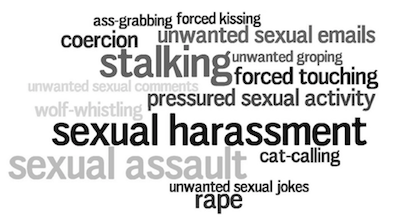-
Advocacy Theme
-
Tags
- Abortion
- Adoption
- Caregiving
- CEDAW
- Disability
- Domestic Violence
- Domestic Workers
- Harassment
- Healthcare
- Housing
- International/Regional Work
- Maintenance
- Media
- Migrant Spouses
- Migrant Workers
- Muslim Law
- National budget
- Parental Leave
- Parenthood
- Polygamy
- Population
- Race and religion
- Sexual Violence
- Sexuality Education
- Single Parents
- Social Support
- Sterilisation
- Women's Charter
Sexual violence still shrouded in silence and shame, but no reason to punish victims
April 21st, 2017 | Gender-based Violence, Letters and op-eds, News, Workplace Harassment
An edited version of this letter was first published in The Straits Times, on 21 April.
 We are disturbed by the statements in the recent judgment (“Man acquitted of raping lover’s daughter; no photos taken of alleged crime scene”, April 12) which appear to perpetuate certain myths relating to sexual violence.
We are disturbed by the statements in the recent judgment (“Man acquitted of raping lover’s daughter; no photos taken of alleged crime scene”, April 12) which appear to perpetuate certain myths relating to sexual violence.
A man was acquitted of raping a teenage girl, the daughter of his intimate partner.
One factor leading to the acquittal was that the victim had not been “prompt in her complaints”. The judge said: ”Someone so abused and humiliated would be expected to seek help and redress when she breaks her silence. …however, she was still reluctant to make a police report.”
This shows a worrying lack of understanding by the criminal justice system of the psychology of sexual assault victims.
The reality is that sexual crimes are substantially under-reported.
In 2016, 61% of survivors (out of 220 cases) reached out to the Sexual Assault Care Centre (SACC), Singapore’s only specialised centre for sexual assault survivors, within a year of their assault, and 20% after 5 years of their assault. Some even reached out to us 10 years after their assault. A majority of our clients do not report their experiences to anyone, including the police.
Moreover, the assault allegedly happened when the victim was 15, by a family-friend. The alleged perpetrator’s relationship to the victim’s mother complicates the circumstances further. From SACC’s experience, 8 out of 10 of sexual assault cases are committed by someone known to the survivor.
It is not uncommon for family members to respond to a child’s experience of assault with disbelief, anger or resentment towards the child, or an unwillingness to file a report, for fear of “losing face” or “breaking up the family”.
In one case that SACC saw, a young survivor did not tell anyone about her mother’s boyfriend assaulting as she did not want to see her mother lonely again, and because her perpetrator was liked by everyone.
The judge’s opinion that the alleged victim had “ample time to recover from any distress or embarrassment”, operates on the principle that there is a set recovery time – but recovery from sexual assault trauma is a long journey and not a ‘phase’ that has an end.
It is disheartening that false ideas of sexual violence are echoed by the criminal justice system. We hope that efforts are made to eliminate these myths on a systemic level so survivors can feel confident in seeking help.



